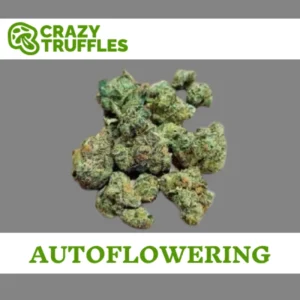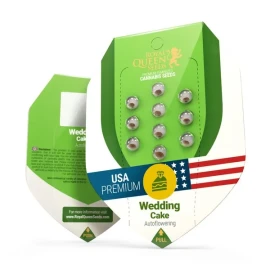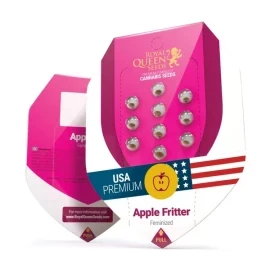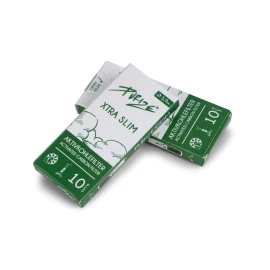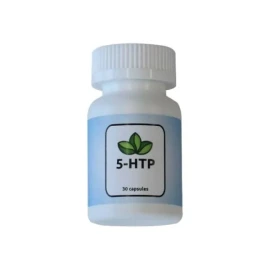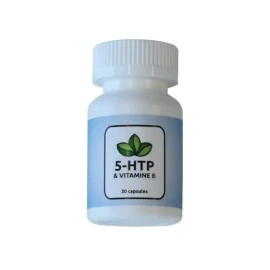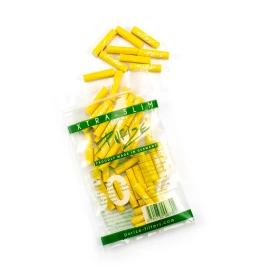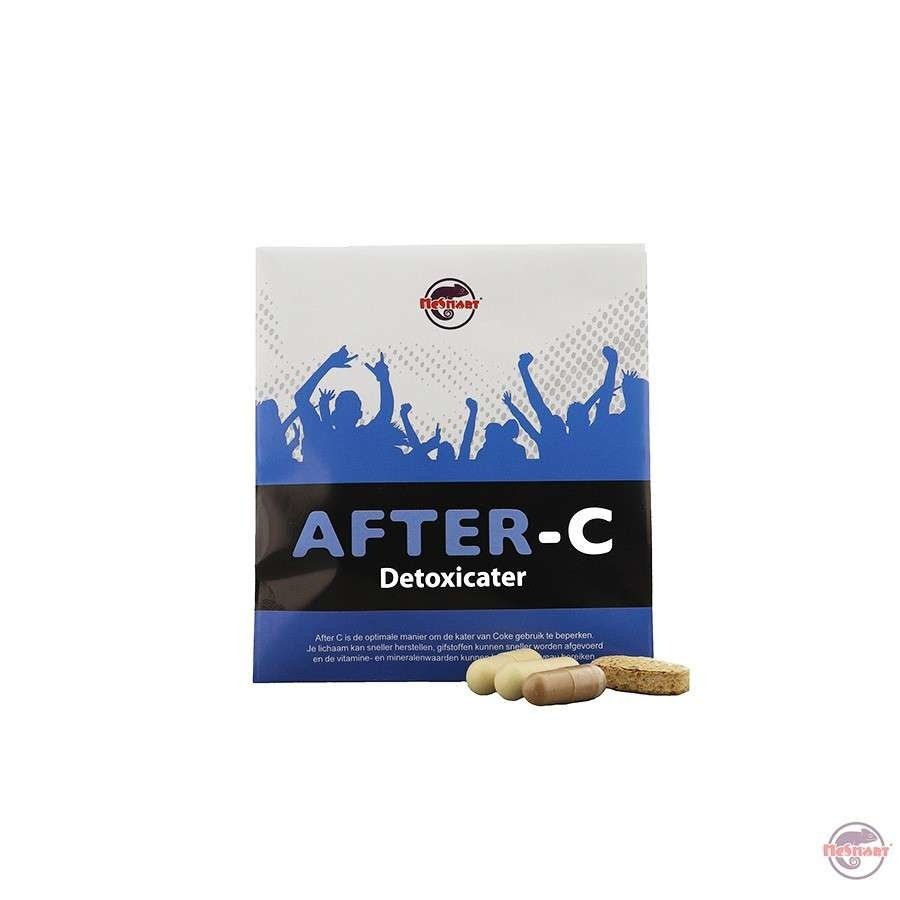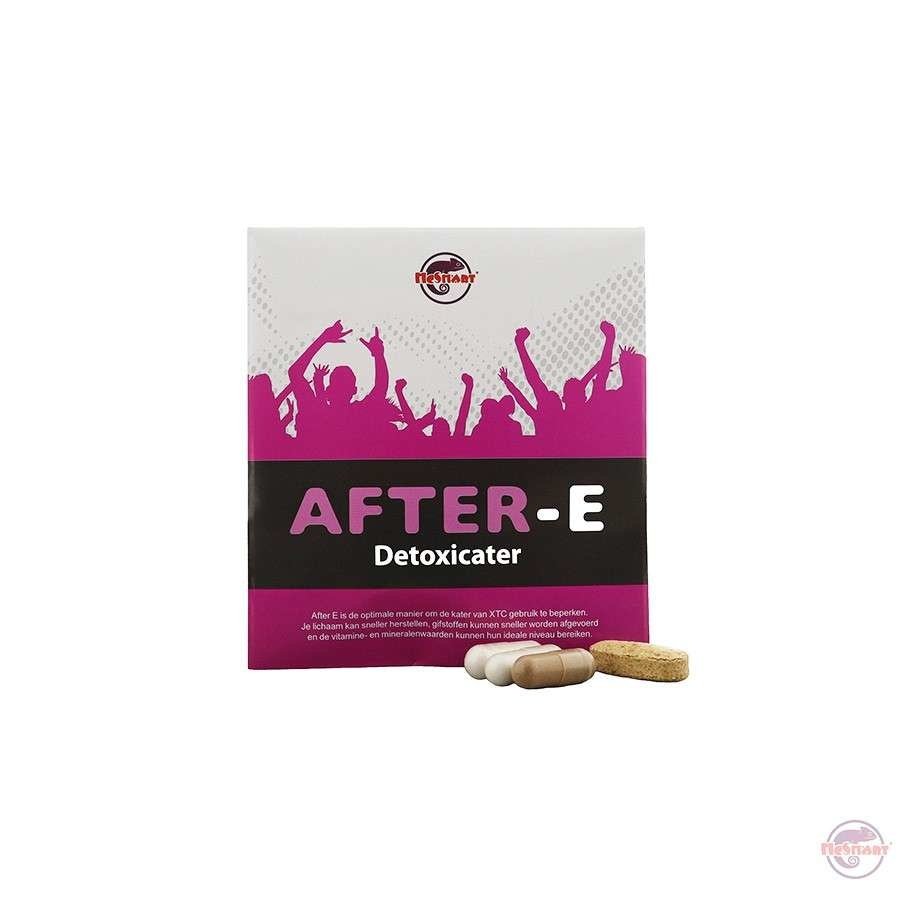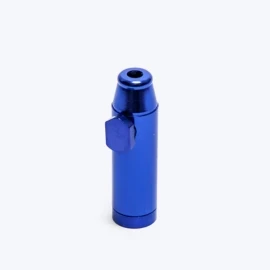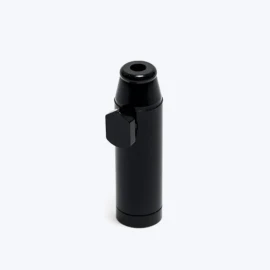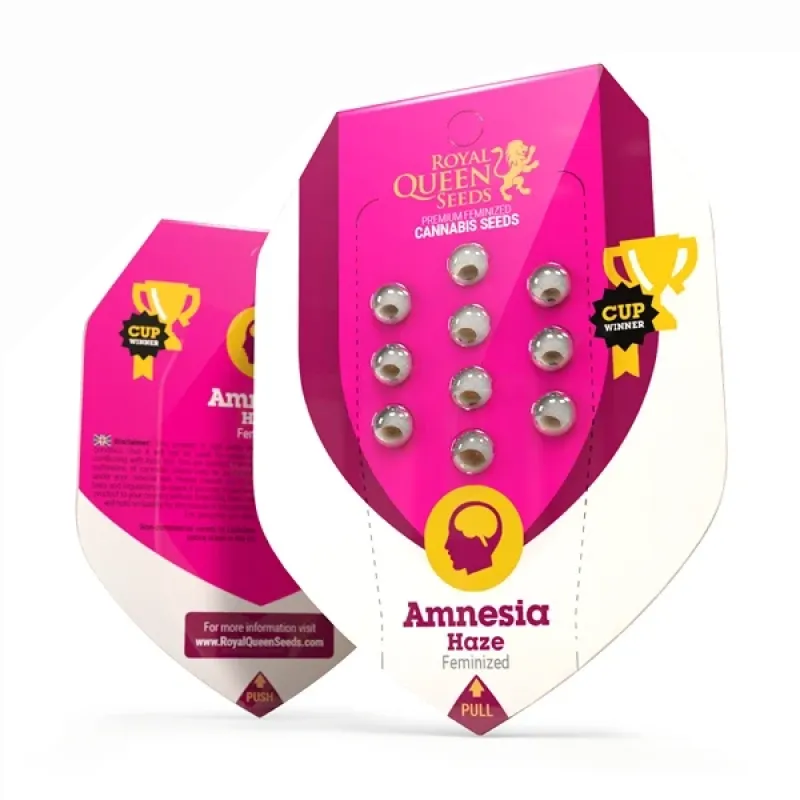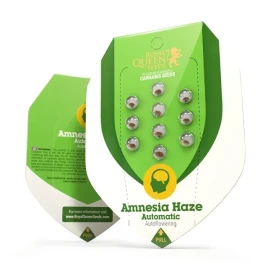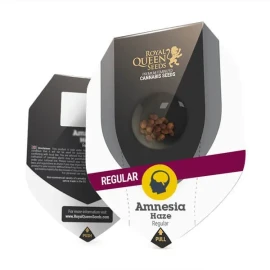Apple Fritter
12,50 €
Apple Fritter — dessert-forward 50/50 hybrid (Sour Apple × Animal Cookies) known for creamy apple & vanilla notes and 22–32% THC.
Quick Facts
- Genetics: Sour Apple × Animal Cookies
- Type: Balanced hybrid (~50/50)
- Typical THC: 22–32%
- Typical CBD: <1% (commonly 0.38–0.65%)
- Dominant terpenes: caryophyllene (0.4–1.2%), plus limonene, myrcene, pinene; secondary: linalool, fenchol, camphene, terpinolene
- Flowering: 8–10 weeks (indoor); outdoor harvest: October (temperate)
- Breeder/origin: popularized by Northern California’s Lumpy’s Flowers
- Best for: euphoria, creativity, relaxation; day/evening hybrid use
Short Product Description
Consumer Version
Apple Fritter delivers an irresistible dessert experience with its signature sweet apple and vanilla aroma profile, backed by potent 22–32% THC levels. This perfectly balanced hybrid offers an uplifting euphoric onset that gradually settles into gentle full-body relaxation, making it ideal for creative pursuits or social gatherings. The dense, resin-coated buds showcase beautiful olive-green coloration with vibrant orange pistils and a sticky texture that speaks to its exceptional quality.
Technical Version
Apple Fritter represents a meticulously crafted 50/50 hybrid combining Sour Apple’s terpene-rich profile with Animal Cookies’ potent genetics. The strain consistently produces dense, trichome-heavy flowers with caryophyllene concentrations ranging 0.4–1.2%, complemented by significant limonene, myrcene, and pinene content. Indoor flowering completes in 8–10 weeks with medium-to-high yields, while outdoor cultivation reaches harvest readiness in October across temperate growing zones.
Complete Product Description
What Makes Apple Fritter Unique
Apple Fritter stands out in the cannabis landscape through its exceptional dessert-inspired terpene signature that perfectly balances sweet baked apple aromatics with creamy vanilla undertones. This strain’s heavy THC content, consistently testing between 22–32%, delivers powerful effects while maintaining the nuanced experience characteristic of well-balanced hybrids. The genetic combination of Sour Apple and Animal Cookies creates a unique synergy that appeals to both recreational consumers seeking flavorful experiences and medical users requiring potent relief.
Sensory Profile
Appearance: Apple Fritter produces remarkably dense, chunky nuggets covered in a thick layer of crystalline trichomes that give the buds a frosty, almost sugary appearance. The base coloration ranges from deep forest green to olive tones, beautifully contrasted by vibrant amber and orange pistils that weave throughout the flower structure. The sticky, resinous texture immediately indicates the strain’s high cannabinoid content and superior curing quality.
Aroma: The fragrance profile opens with pronounced sweet baked apple notes reminiscent of fresh apple pastry, followed by rich vanilla cream undertones that create an almost dessert-like olfactory experience. Subtle diesel and earthy elements provide depth and complexity, while the caryophyllene-driven spiciness adds a gentle peppery edge that prevents the sweetness from becoming overwhelming.
Flavor: On inhalation, Apple Fritter delivers smooth, sweet apple and vanilla flavors that coat the palate with creamy, dessert-like richness. The exhale reveals more complex herbal and peppery notes, with subtle earth and spice elements that provide a satisfying finish. The flavor profile remains consistent throughout the session, with the natural terpene preservation creating an authentic taste experience.
Experience & Effects
Primary Effects: Apple Fritter initiates with a rapid euphoric lift that enhances mood and promotes creative thinking. Users typically experience increased sociability and mental clarity during the initial phase, making it excellent for artistic pursuits, social interactions, or brainstorming sessions. The cerebral stimulation feels energizing without being overwhelming or anxiety-inducing when consumed in appropriate doses.
Secondary Effects: As the session progresses, gentle body relaxation begins to complement the mental stimulation. This physical component provides stress relief and mild muscle tension release without heavy sedation. The balanced nature allows users to remain functional and engaged while enjoying the therapeutic benefits of both the strain’s sativa and indica characteristics.
Onset & Duration: Effects typically manifest within 2-5 minutes when smoking or vaping, with peak intensity reached around 15-30 minutes post-consumption. The primary experience lasts approximately 2-3 hours, followed by a gentle comedown that leaves users feeling relaxed and content rather than fatigued. Individual tolerance and consumption method significantly influence duration and intensity.
Common Side Effects: Standard cannabis side effects apply, including dry mouth and dry eyes, which can be managed with proper hydration and eye drops. At higher doses, some users may experience mild anxiety or paranoia, particularly those sensitive to high-THC strains. Starting with smaller amounts and gradually increasing allows users to find their optimal dosing range.
Medical & Therapeutic Applications
Apple Fritter’s balanced cannabinoid and terpene profile makes it valuable for various therapeutic applications. Users frequently report success with stress management, chronic pain relief, mood disorders, and creative focus enhancement. The strain’s ability to provide both mental uplift and physical relaxation makes it particularly useful for afternoon or evening medical use when patients need symptom relief while maintaining some functionality.
For insomnia management, higher doses consumed later in the evening can provide the sedative effects needed for sleep preparation. The anti-inflammatory properties associated with caryophyllene may offer additional benefits for users dealing with inflammatory conditions.
Important: This information is not intended as medical advice. Consult with healthcare professionals before using cannabis for medical purposes and always reference current lab data for specific cannabinoid and terpene content.
Lab Data & Composition
Cannabinoid Profile
THC: 22–32% (typical range across batches)
CBD: commonly 0.38–0.65% (<1%)
Minor Cannabinoids: CBC, CBG, and other minor cannabinoids present in low concentrations
The high THC content places Apple Fritter in the premium potency category, while the minimal CBD levels ensure the psychoactive effects remain prominent. All batches undergo comprehensive testing for potency, pesticides, heavy metals, and microbials to ensure safety and quality standards.
Terpene Analysis
Caryophyllene (Primary): 0.4–1.2% — Contributes the characteristic peppery and woody notes while potentially offering anti-inflammatory benefits through CB2 receptor interaction.
Supporting Terpenes: Limonene enhances mood and provides citrus brightness, myrcene adds earthy depth and may contribute to relaxation effects, while pinene offers focus-enhancing properties and forest-fresh aromatics.
Secondary Terpenes: Linalool, fenchol, camphene, and terpinolene appear in varying concentrations, each contributing subtle aromatic and potential therapeutic nuances to the overall profile.
The diverse terpene spectrum creates Apple Fritter’s complex sensory experience while potentially contributing to the entourage effect that enhances the strain’s overall therapeutic value.
Use Cases & Consumption Guidance
Ideal Users
Recreational Consumers: Perfect for those seeking creative inspiration combined with dessert-like flavors. Excellent for social situations, artistic endeavors, or relaxing evenings when you want to remain engaged and functional.
Medical Users: Suitable for patients requiring daytime symptom relief without heavy sedation. Beneficial for stress, mild to moderate pain, mood disorders, and focus enhancement needs.
Cultivators: Attractive option for growers seeking medium-to-high yields with exceptional bag appeal and market demand for dessert-flavored strains.
Consumption Methods
Dry Flower (Joints/Pipes/Bowls): Provides the full spectrum terpene experience with traditional onset and duration characteristics. Best method for appreciating the complete flavor profile.
Vaporizing: Offers cleaner consumption with preserved terpenes when used at appropriate temperatures (185-200°C). Faster onset with potentially more efficient cannabinoid delivery.
Concentrates/Extracts: High-THC phenotypes produce excellent live resin and rosin products that concentrate the apple and vanilla flavors while delivering potent effects.
Edibles: Exercise extreme caution due to high THC content. The strain’s genetics translate well to edible preparation, but dosing becomes critical for safe consumption.
Dosing Guidelines
Beginners: Start with 1-2 small inhalations, wait 10-15 minutes between doses to assess effects. The high THC content requires conservative initial dosing.
Intermediate Users: 2-4 inhalations typically provide desired effects without overwhelming intensity. Adjust based on individual tolerance and desired experience.
Experienced Consumers: 4+ inhalations or equivalent concentrate amounts. Even experienced users should respect the strain’s potency and avoid overconsumption.
Edible Dosing: Begin with 2.5-5mg THC equivalent, wait 60-90 minutes before considering additional consumption. The strain’s high THC makes precise dosing essential.
Safety Note: Avoid operating vehicles or machinery after consumption. Always purchase from licensed sources with proper lab testing and batch tracking.
Packaging & Storage
Optimal Storage Conditions
Store Apple Fritter in airtight containers away from light, heat, and moisture to preserve terpene integrity and prevent degradation. Ideal storage temperature ranges between 60-70°F (15-21°C) with relative humidity maintained around 62% using humidity control packs.
Shelf Life Expectations
Properly stored flower maintains optimal potency and flavor for 6-12 months. THC degradation occurs slowly over time, but proper storage significantly extends the product’s quality lifespan. Terpene preservation is most critical during the first six months post-harvest.
Package Features
Products arrive in child-resistant, light-proof containers with tamper-evident seals. Many packages include humidity control packs to maintain optimal moisture levels during storage. All packaging complies with local regulations regarding labeling and safety requirements.
Grower Corner
Basic Cultivation Specs
Genetics: Photoperiod strain requiring standard light cycle manipulation
Flowering Time: 8-10 weeks indoor; outdoor harvest October (Northern Hemisphere)
Growth Pattern: Medium-to-tall plants with heavy cola development and exceptional resin production
Yield Potential: Medium-to-high yields when properly cultivated with appropriate training techniques
Environmental Requirements
Indoor Cultivation:
- Vegetative: 18/6 light cycle, 20-26°C, 55-65% RH
- Flowering: 12/12 light cycle, 18-24°C, 40-55% RH
- Recommended techniques: SCROG, SOG, regular defoliation for airflow
- Requires adequate ventilation and humidity control for optimal resin development
Outdoor Growing:
- Best suited for warm, temperate climates with Mediterranean-like conditions
- Requires protection from late-season moisture to prevent bud rot
- October harvest timing in Northern Hemisphere locations
- Full sun exposure maximizes terpene and cannabinoid production
Climate-Specific Considerations
Mediterranean/Temperate: Ideal growing conditions produce maximum resin and terpene expression with proper harvest timing.
Arid/Desert: Requires intensive irrigation and heat stress management. Monitor for nutrient lockout and transpiration issues during extreme heat periods.
Tropical/Humid: High mold risk requires aggressive pruning, enhanced airflow, and preventive anti-fungal strategies throughout flowering.
High-Altitude/Cool: Slower maturation but enhanced terpene retention. Risk of early frost requires protection strategies and potential greenhouse cultivation.
Pest & Disease Management
Common threats include spider mites, aphids, powdery mildew, and botrytis. Prevention through environmental control, beneficial insects, regular plant inspection, and proper drying/curing procedures significantly reduces risk factors. Maintain clean cultivation spaces and implement integrated pest management strategies.
Nutrition & Training
Apple Fritter responds well to moderate-to-heavy feeding during flowering to support dense bud development. Training methods including topping, LST, and SCROG maximize yields while improving light penetration and airflow. Regular pruning of lower growth focuses energy on premium cola development.
Harvest & Curing
Monitor trichomes for optimal harvest timing — approximately 20-30% amber trichomes provides the balanced uplifting and relaxing effects characteristic of quality Apple Fritter. Slow drying (7-10 days) followed by proper curing (2-8 weeks minimum) preserves the strain’s signature apple and vanilla terpene profile.
Genetics & Lineage
Parent Strains
Sour Apple: Contributes the distinctive apple aromatics and uplifting cerebral effects that define Apple Fritter’s initial experience.
Animal Cookies: Provides the heavy resin production, potent THC levels, and relaxing physical effects that balance the strain’s overall profile.
Breeder History
Apple Fritter gained prominence through Northern California’s Lumpy’s Flowers, though multiple breeders now offer their interpretations of this popular genetic combination. The strain has earned recognition in various cannabis competitions and consistently ranks among top dessert-flavored varieties.
Notable Recognition
Apple Fritter has received multiple awards and recognition from cannabis industry publications, including features in “World’s Strongest Strains” compilations and High Times Cup placements. The strain’s popularity has led to numerous derivative crosses and phenotype selections across different breeding programs.
Legal & Safety Information
Legal Compliance
This product is intended for adult use in jurisdictions where cannabis is legal. Age restrictions and possession limits vary by location. Verify local laws before purchase or consumption. Not intended for use by minors, pregnant or nursing individuals.
Medical Disclaimer
Information provided is for educational purposes and not intended as medical advice. Consult healthcare professionals before using cannabis for medical conditions. Individual responses vary significantly based on tolerance, metabolism, and health status.
Sustainability Notes
Support ethically-grown, pesticide-free cannabis through responsible cultivation practices. Many producers emphasize water-efficient irrigation, energy-efficient lighting, and sustainable packaging materials. Social equity programs support community development and industry diversification.
Frequently Asked Questions
Is Apple Fritter indica or sativa?
Apple Fritter is a balanced hybrid (approximately 50/50) combining both indica and sativa characteristics for versatile effects suitable for various times of day.
How strong is Apple Fritter?
With THC levels ranging 22-32%, Apple Fritter is considered a high-potency strain requiring careful dosing, especially for inexperienced users.
What does Apple Fritter taste like?
The flavor profile features sweet baked apple and vanilla cream on inhalation, followed by herbal and peppery notes on exhale.
Is it good for sleep or creativity?
Apple Fritter initially promotes creativity and mental clarity, then transitions to relaxation. Higher doses later in the evening can support sleep preparation.
How long does the high last?
Primary effects typically last 2-3 hours when smoking or vaping, with a gentle comedown extending the overall experience to 4-5 hours.
Is Apple Fritter good for microdosing?
The high THC content makes traditional microdosing challenging. Very small amounts (single puff) may provide mild effects suitable for microdose protocols.
How should I store this flower?
Use airtight containers in cool, dark locations with humidity control packs maintaining 62% relative humidity for optimal preservation.
Does it test for pesticides and contaminants?
All products undergo comprehensive laboratory testing for pesticides, heavy metals, microbials, and potency. View current Certificate of Analysis for specific batch data.
Can I grow Apple Fritter in my climate?
Growing success depends on your specific climate conditions. Indoor cultivation provides environmental control, while outdoor growing requires warm, temperate conditions with October harvest timing.
Related Products
Frequently Asked Questions
Everything You Need to Know

